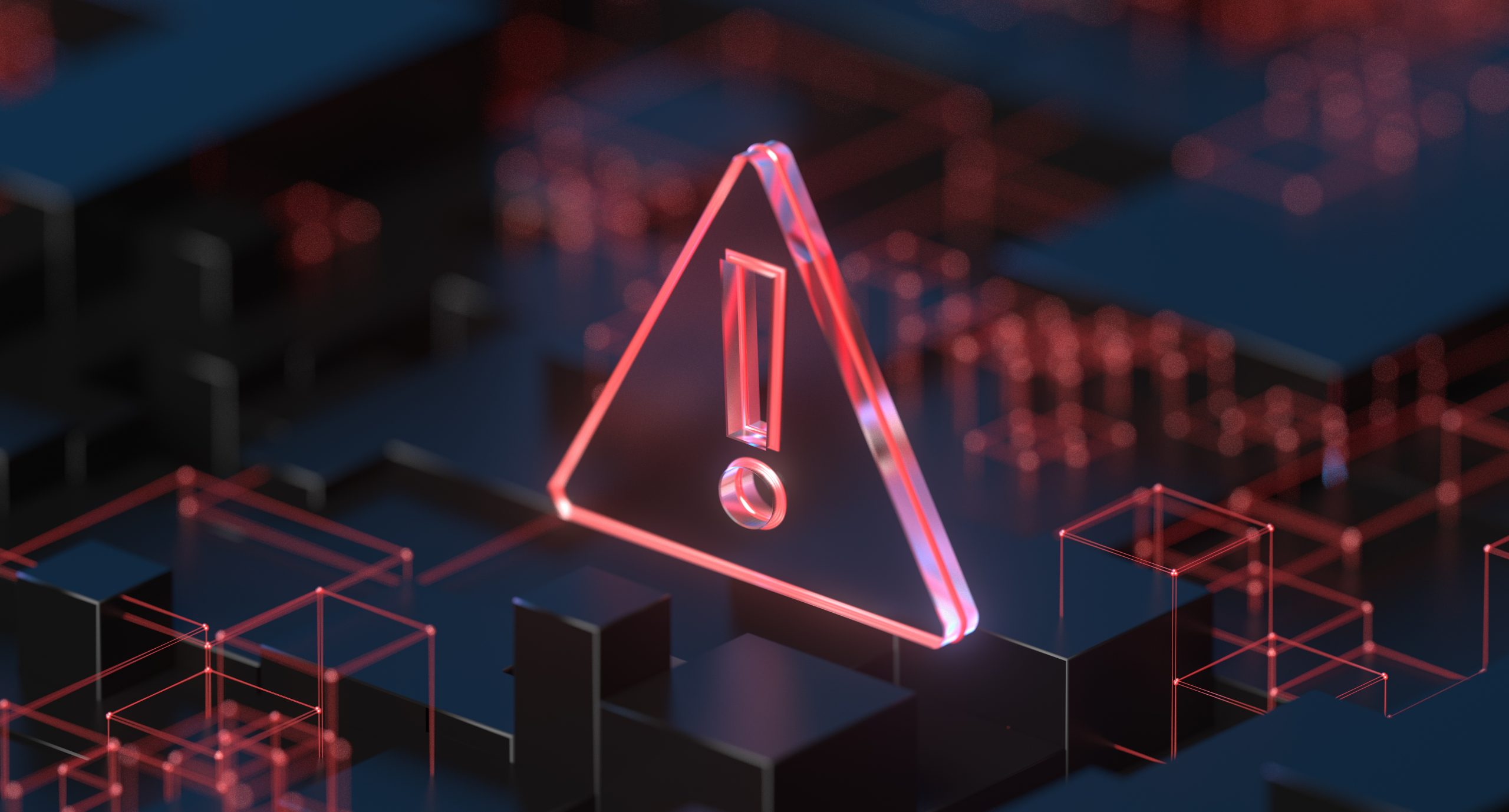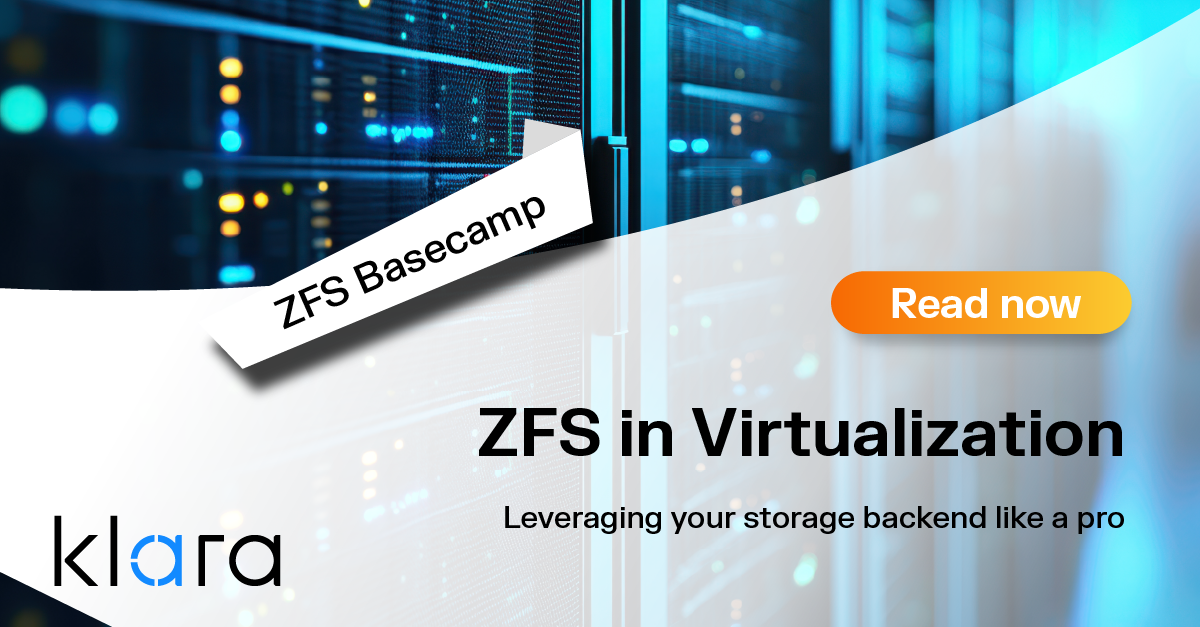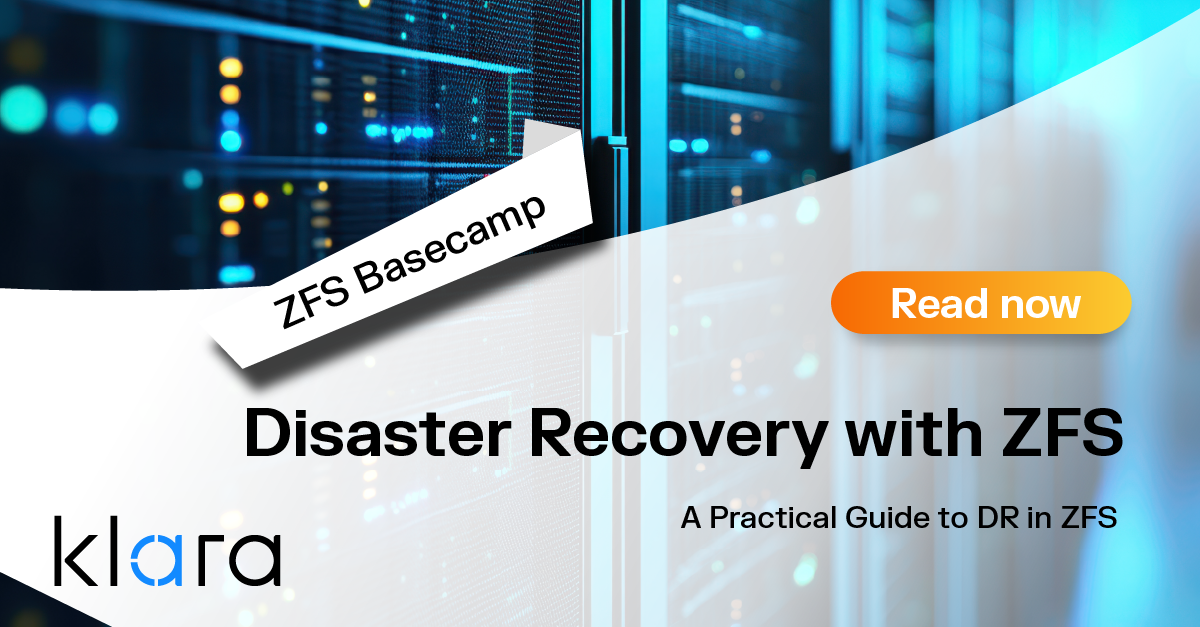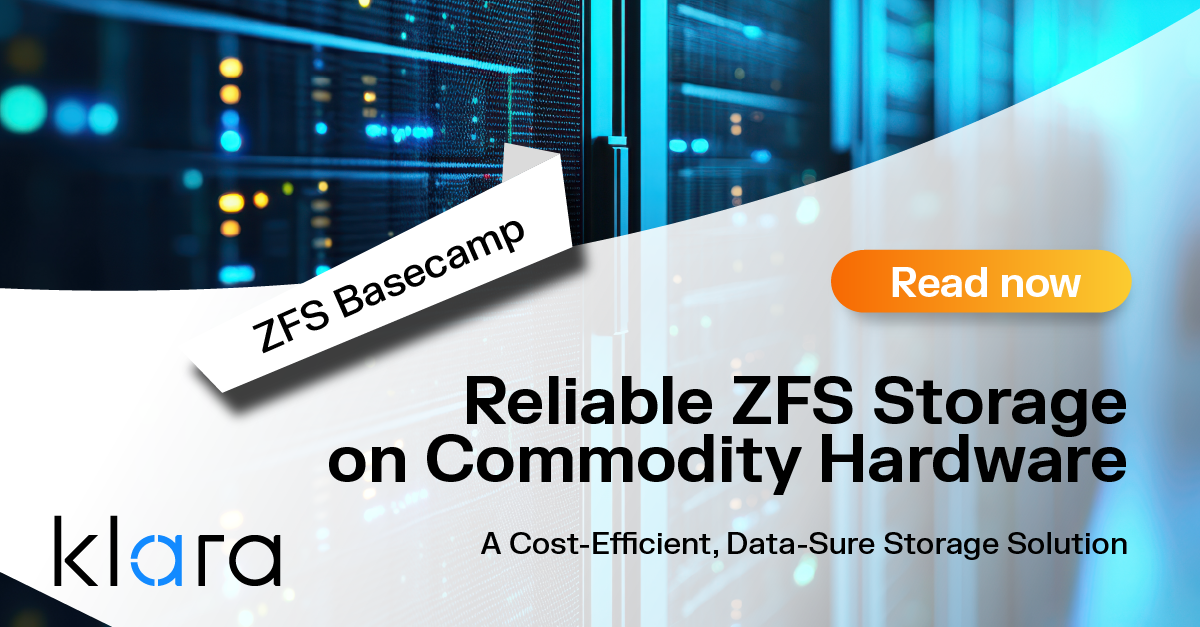Improve the way you make use of ZFS in your company.
Did you know you can rely on Klara engineers for anything from a ZFS performance audit to developing new ZFS features to ultimately deploying an entire storage system on ZFS?
ZFS Support ZFS DevelopmentAdditional Articles
Here are more interesting articles on ZFS that you may find useful:
- ZFS in Virtualization: Storage Backend for the Pros
- Disaster Recovery with ZFS: A Practical Guide
- ZFS Performance Tuning – Optimizing for your Workload
- Reliable ZFS Storage on Commodity Hardware – A Cost-Efficient, Data-Sure Storage Solution
- Owning the Stack: Infrastructure Independence with FreeBSD and ZFS
In today's digital landscape, the rise of ransomware attacks has become an increasingly alarming threat to data security. Cybercriminals are targeting organizations of all sizes, demanding exorbitant ransoms to unlock valuable data. As the frequency and sophistication of these attacks continue to escalate, it is imperative to explore effective solutions that can protect our data from such malicious intent.
The Current Challenge of Ransomware Attacks
Ransomware attacks have become a plague that affects both individuals and organizations worldwide. According to recent statistics, ransomware incidents have skyrocketed by over 150% in the last two years alone. These attacks have caused substantial financial losses, with estimates exceeding billions of dollars annually. More importantly, they have resulted in significant disruptions to critical operations, compromising the integrity and availability of vital data.

Average cost of a data breach in the United States from 2006 to 2022 (In million US dollars)
Source: https://www.statista.com/statistics/273575/us-average-cost-incurred-by-a-data-breach/
Escalating Risks and the Costly Nature of Security Solutions
The future looks ominous as ransomware challenges continue to evolve. Cybercriminals are constantly adapting their tactics, employing more sophisticated methods to infiltrate and encrypt sensitive data. Unfortunately, the cost of implementing efficient security solutions often surpasses the financial penalties imposed by attackers. This unfortunate reality presents organizations with a daunting dilemma: invest heavily in robust security measures or potentially succumb to the demands of cybercriminals.
Granular Control our Your Data and the Role of OpenZFS
Designing storage infrastructure that allows for granular control of data is crucial when combatting ransomware threats. OpenZFS, an open source file system, offers a compelling solution in this regard. By integrating OpenZFS into your storage architecture, you gain the ability to implement fine-grained access controls, snapshot-based backups, and advanced data protection mechanisms, empowering you to resist ransomware attacks effectively.
OpenZFS: A Guardian of Data
OpenZFS boasts an array of technical features that enhance data protection and resilience. Firstly, its copy-on-write mechanism ensures that data modifications occur atomically, preventing attackers from tampering with files without leaving a trace. Additionally, OpenZFS supports robust checksumming, detecting and mitigating data corruption caused by ransomware or other forms of malicious interference.
Snapshots, a powerful feature within OpenZFS, create read-only copies of the file system at specific points in time. By taking regular snapshots, organizations can revert to a known good state in the event of a ransomware attack, effectively neutralizing the impact of the encryption. Furthermore, OpenZFS offers data deduplication and compression, optimizing storage utilization without compromising data integrity.
The concept of data replication is central to OpenZFS, enabling the distribution of data across multiple devices or locations. In the context of ransomware, this redundancy ensures that even if one copy of the data is compromised, other replicas remain unaffected, preserving access to critical information.
OpenZFS as a Post-Ransomware Recovery Infrastructure
In the aftermath of a ransomware attack, recovery becomes paramount. OpenZFS's comprehensive data protection features, coupled with its ability to create immutable snapshots, provide organizations with an efficient infrastructure for recovering from such incidents. By leveraging the snapshot functionality, IT administrators can easily restore files to a pre-attack state, effectively neutralizing the damage caused by encryption.
Where Do We Go From Here?
As ransomware attacks continue to pose a significant threat to data security, the need for robust and resilient storage solutions becomes paramount. OpenZFS, with its granular control, advanced protection mechanisms, and post-ransomware recovery capabilities, emerges as a reliable ally in the battle against cybercriminals. By implementing OpenZFS within their storage infrastructure, organizations can fortify their data against the menace of ransomware attacks.
The current landscape of ransomware attacks highlights the urgency for proactive measures. With the number of incidents and associated costs on the rise, organizations must prioritize data security. While investing in security solutions can be costly, the potential ramifications of succumbing to ransomware far outweigh the initial expenses of implementing robust defenses. OpenZFS offers a cost-effective alternative by leveraging its open source nature, enabling organizations to deploy a powerful storage solution without breaking the bank.
The flexibility provided by OpenZFS allows organizations to design storage architectures that align with their unique requirements. With granular control over data access, administrators can implement stringent permission levels, ensuring that only authorized individuals can modify critical files. This level of control minimizes the risk of unauthorized access and limits the potential impact of a ransomware attack.
Leveraging Snapshots
Snapshots in OpenZFS are an essential weapon in the fight against ransomware threats, offering a powerful means of defense. These snapshots create immutable, read-only copies of the file system, capturing the precise state of data at a specific point in time. When it comes to combating ransomware, snapshots can play a pivotal role in a speedy recovery.
Imagine the scenario: ransomware strikes, encrypting your files and holding them hostage. But fear not, for with OpenZFS and its snapshot feature, you have a powerful ally. By regularly creating snapshots of your file system, you establish a series of known-good states, impervious to the clutches of encryption. In the unfortunate event of a ransomware attack, you can simply roll back your affected files or entire file systems to a snapshot taken prior to the malicious onslaught. This ability to revert to a pre-attack state effectively thwarts the impact of the encryption, allowing you to reclaim your data without succumbing to the ransom demands. This recovery is near instantaneous, compared to slow and laborious restoration from backups.
What sets these snapshots apart is their immutable nature. Once a snapshot is taken, it becomes a safeguarded reference point, impervious to modification or tampering. Ransomware operates by encrypting files, altering their content, and rendering them inaccessible. But snapshots stand firm, immune to such malicious meddling. By utilizing these read-only snapshots, OpenZFS ensures that even if ransomware strikes, your original, unencrypted files remain protected and restorable.
The power of snapshots lies in their ability to preserve the history and integrity of your data. With each snapshot representing a distinct moment in time, you have a comprehensive timeline of your file system's evolution. This chronology enables you to choose precisely when to roll back your files, giving you granular control over the recovery process. Whether it's a single file or an entire directory, snapshots empower you to selectively restore only what's necessary, minimizing disruption and maximizing efficiency.
Read more about OpenZFS Snapshots >
Have You Considered Checksumming?
Checksumming serves as a crucial line of defense against ransomware attacks by ensuring data integrity and detecting any unauthorized modifications or corruption caused by malicious activities. When data is written to disk within an OpenZFS file system, a unique checksum is calculated and stored for each data block.
During subsequent read operations, OpenZFS recalculates the checksum for each data block and verifies if it matches the stored value. If the checksums match, the data is deemed intact and unaltered. However, if the recalculated checksum differs from the stored value, it indicates that the data has been modified or corrupted.
This mechanism becomes particularly powerful in the context of ransomware attacks. Ransomware typically encrypts files, altering their content and rendering them inaccessible. However, ransomware that targets raw block devices can go undetected, but when the modified devices are read by OpenZFS, the recalculation of checksums will fail to match the stored values, triggering an alert that something has tampered with the data.
By detecting the mismatched checksums, OpenZFS can quickly identify the presence of ransomware and mitigate its impact. It can initiate appropriate responses, such as isolating affected files, alerting administrators, and preventing further propagation of the ransomware by isolating the infected system or network segment.
With the ability to detect unauthorized modifications, checksumming within OpenZFS acts as an early warning system against ransomware attacks, allowing organizations to take immediate action to mitigate the impact. By identifying compromised files or storage systems, organizations can isolate the affected data and prevent the spread of the ransomware, minimizing potential damage and data loss.
Let’s Not Forget About Data Replication in OpenZFS
Data replication is another critical aspect of OpenZFS that bolsters its resilience against ransomware. By creating redundant copies of data across multiple systems or locations, organizations can ensure the availability and integrity of their critical information. In the context of ransomware, this redundancy plays a crucial role in mitigating the impact of such attacks.
In the unfortunate event of a ransomware attack, where one copy of the data is compromised and encrypted, the unaffected replicas stored in different locations or devices remain unharmed. This allows organizations to quickly recover their data by accessing the unaffected copies, minimizing the disruption caused by the attack. By having multiple replicas, organizations can avoid paying ransoms and restore their data from known good copies, rendering the encrypted files irrelevant.
Moreover, data replication in OpenZFS enables organizations to implement geographically distributed storage architectures. By replicating data across different physical locations, organizations can protect against localized events such as natural disasters, fires, or localized cyberattacks. In the case of a ransomware attack affecting one location, the replicas in other locations remain secure, ensuring the continuity of operations and reducing the overall impact on the organization.
Read more about OpenZFS Replication >
Conclusions
OpenZFS emerges as the ideal solution for university infrastructures, even in the context of High-Performance Computing (HPOpenZFS stands as a formidable defense against the rising threat of ransomware attacks. By providing granular control, robust data protection mechanisms, and efficient recovery options, OpenZFS empowers organizations to safeguard their valuable data. As the challenges posed by ransomware continue to escalate, the need for resilient storage solutions becomes increasingly crucial. OpenZFS not only mitigates the risks but also offers a cost-effective alternative to protect data, ensuring that organizations can maintain control, recover swiftly, and mitigate the damaging impact of ransomware attacks. Its technical prowess and unique features make it well-suited for the complex requirements of university environments.
officeklara
Learn About KlaraGetting expert ZFS advice is as easy as reaching out to us!
At Klara, we have an entire team dedicated to helping you with your ZFS Projects. Whether you’re planning a ZFS project or are in the middle of one and need a bit of extra insight, we are here to help!














